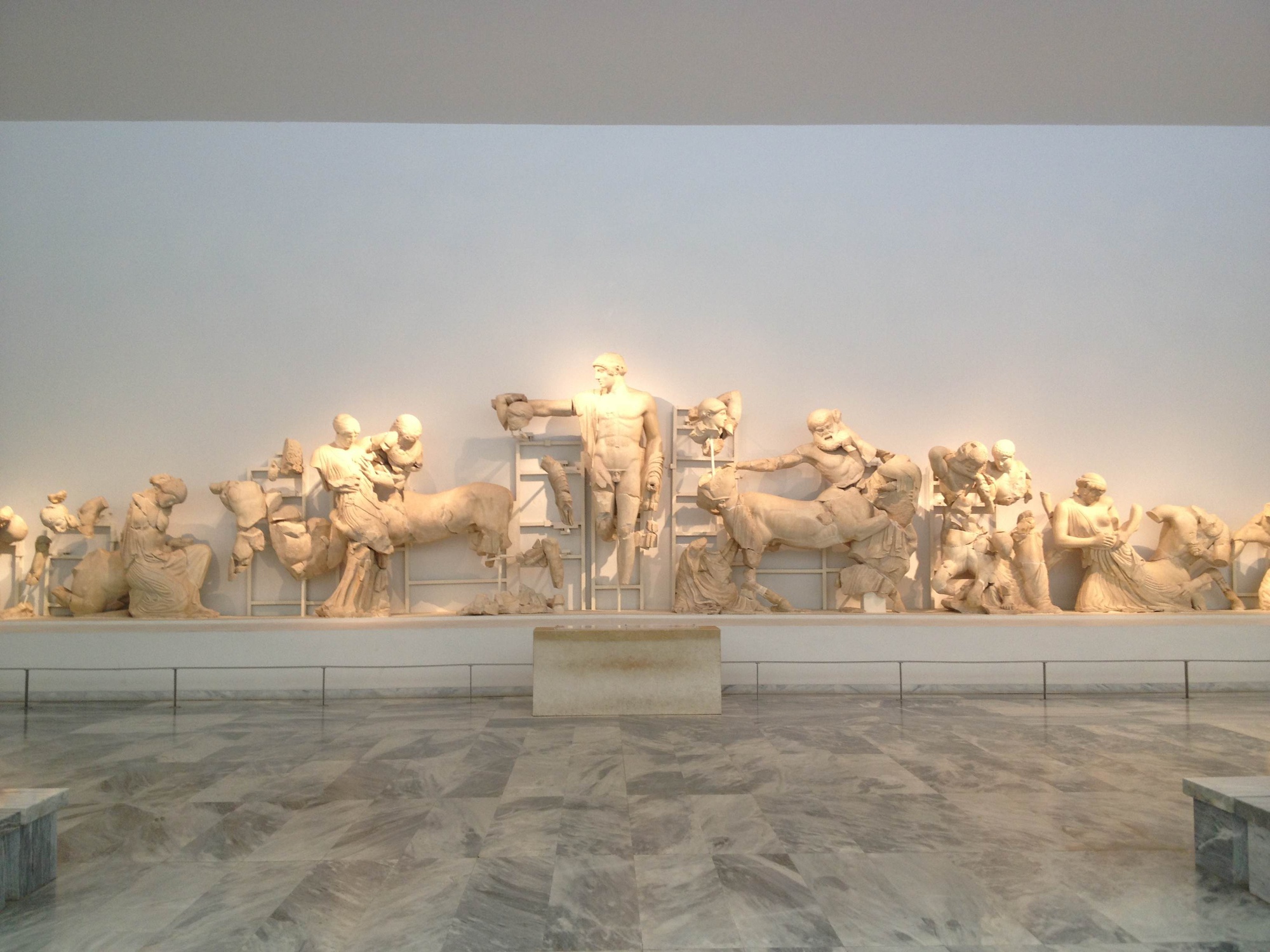
News
Summers Will Not Finish Semester of Teaching as Harvard Investigates Epstein Ties

News
Harvard College Students Report Favoring Divestment from Israel in HUA Survey

News
‘He Should Resign’: Harvard Undergrads Take Hard Line Against Summers Over Epstein Scandal

News
Harvard To Launch New Investigation Into Epstein’s Ties to Summers, Other University Affiliates

News
Harvard Students To Vote on Divestment From Israel in Inaugural HUA Election Survey
Perceptions of Perfection

ARCHAIA OLYMPIA, Greece – Silence floods the cavernous space, whistling across the cold marble, making a serene pact with all within. The bright lights bathe the room like Olympian daylight, yet illuminate one figure in particular. He towers above me, calm, just, austere, and imposing. One of Mount Olympus’s most eligible bachelors, he’s tall, he’s handsome, and he’s powerful. I wonder how such a perfect man ever existed, even in the realm of myth. He must be based off someone real, right? And if so, why can’t I find someone like him today? The statue of Apollo holds me transfixed, and I stand and stare up at his perfect Greek god (literally) physique and his commanding presence of power. He faces to the left, his arm outstretched, restoring order to a frozen scene of chaos. Around him, a mess of entangled bodies writhes – Lapiths battling Centaurs, abducted women screaming for help. The moment hangs in the air for eternity, as if Apollo himself has commanded time to screech to a halt. He seems so utterly above it all, jaded like an aloof Brooklyn hipster transported to classical times.
What would my life seem like to Apollo? Would I join him in his alabaster perfection or am I too common, too mainstream for his Olympian taste? I am far from a flawless Greek goddess, but then again, flawlessness like Apollo’s doesn’t exist. Later that day I learned that the statue of Apollo didn’t even have a living male model – it was based off of a series of measurements, an ancient mathematical formula of perfect hairline-to-jawline ratios, shoulder widths and muscle masses – the Greek version of Photoshop. And while Apollo is immortal, he is fixed in time and space forever – endlessly passing his godly judgment on the Lapiths, while I am free to pass out of his gaze. However, he will forever be youthful and strong butI am subject to age and entropy. But what is better – an eternity of immobile certainty and perfection, or the ability to live, grow, make mistakes and transform as a person? His temples have crumbled while my life becomes more unpredictable, flawed, and beautiful every second that rolls by. And while one of these deities with perfect Olympian proportions may never step off of his pedestal and into my life, I’ll find someone real, someone who will still love me even when I’m no longer young and beautiful.
Apollo can keep his flawless, peaceful, leisurely eternities.
I’m much too restless to live like that.
Want to keep up with breaking news? Subscribe to our email newsletter.
